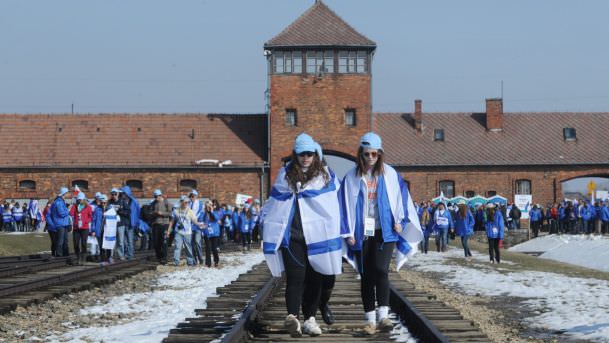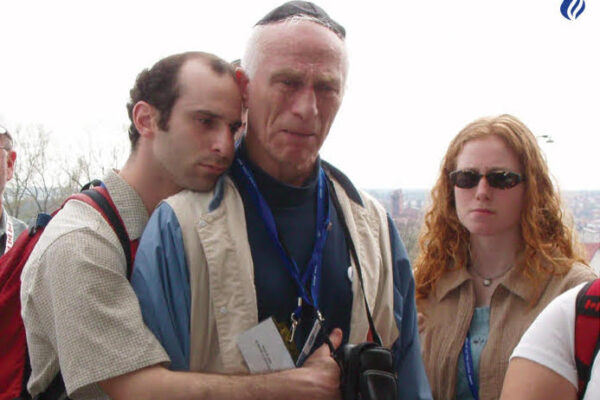
A young Israeli I once met at a bar in Berlin told me that she lived in Germany thanks to her Polish passport and enjoyed life thanks to a German scholarship. When I asked if she had considered doing the same thing in Warsaw, she made a face and said she couldn’t imagine herself living in the country “where it all began.” When I pressed on and asked if it didn’t disturb her to be out having fun not far from the former site of Gestapo headquarters, she countered with an unbeatable argument: “But the Poles are anti-Semites.”
In a recent op-ed (Haaretz, Jan. 26), Nitzan Horowitz rightfully mentions Polish anti-Semitism, but in the same breath he notes that Auschwitz was not a Polish extermination camp but rather a Nazi one, and that millions of Poles, whose country was totally destroyed, also died in World War II. “Why Poland, or why only Poland, and why not Germany?” he asks, referring to the organized Holocaust trips to Poland for young Israelis.
Horowitz’s piece met with surprise in Poland. We Poles aren’t accustomed to support of this kind. Although Polish scholars have a voice in the academic debate, it is absent from the international public arena. In anything to do with the Holocaust, Israelis would rather hear from Germany.
You forgot to invite us Poles to the Israel-Germany reconciliation process. The result is that you continue to say the Poles are anti-Semites, while our diplomats make fools of themselves repeatedly defending Poland’s past and they have to mention, apologetically, that there were Poles who saved Jews.
A lively debate on the past has been continuing for some years in Poland. You can find it in books, newspapers, theater, television and movies. One of the latter, “Ida,” even won the Oscar for best foreign film in 2015, but somehow the debate remains a domestic Polish matter, so Israelis almost certainly haven’t heard about it.
The Jewish cemeteries scattered throughout Poland, together with the remains of the death camps, ghettos and synagogues, are with us every day. We wake up to them in the morning, pass them on our way to work and go to sleep at night in cities whose names evoke fear in Israelis, including Oswiecim, Lodz and Kielce.
In “Demon,” a modern-day take on the dybbuk legend by the late Polish director Marcin Wrona that figure of Jewish folklore, which was shown at the Haifa International Film Festival in October, Israeli actor Itay Tiran plays a man who finds a woman’s skeleton in his fiancee’s yard the night before their wedding. The spirit of the dead woman speaks Yiddish to him and takes possession of his body. In my opinion, the movie is a metaphor for the Polish problem: We continue to live here, alone, with the ghosts of the vibrant Jewish world of prewar Poland.
When Israeli Jews visit Poland’s Holocaust sites, they return to Israel with a sense of relief. We, in contrast, must find a way to continue to live alongside these places, unable to exorcise this dybbuk. The sense of guilt, whether open or suppressed, and the scars of the war have created a situation in which we lack the self-confidence to participate in the debate between Israelis and Germans. As a result, to the Israelis we have turned from being victims of the terrible war that happened in our country into being partners in the crime of the Germans.
Unlike Germany, Poland doesn’t have the money to give scholarships to young Israelis and to invite them to experience the new Poland. We also don’t have the money for good public relations. The fact that Auschwitz, the clearest symbol of the Holocaust, was built a distance from Berlin, in occupied Poland, is a symbol of a victory for Hitler, who succeeded in making Poland a partner, a party responsible for the tragedy.
How can we change this? Invite us to the table. Get a cheap flight and come to Krakow or Warsaw for the weekend. Visit Auschwitz with young Poles. And maybe you should return Auschwitz to the place where it belongs, the place “where it all began.”
Originally published HERE.








